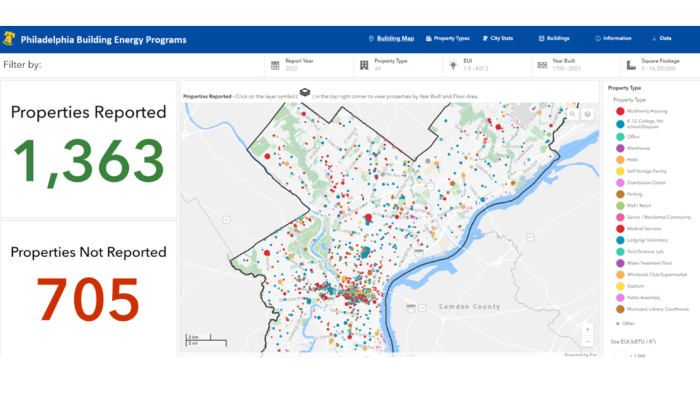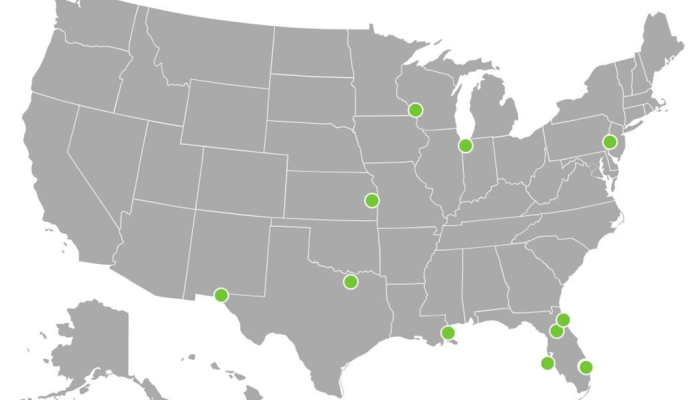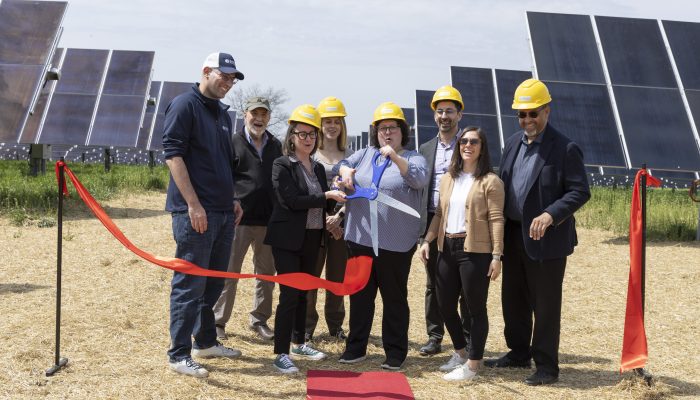The Office of Sustainability has released a new report on the 2019-2022 progress of two key programs aimed at reducing greenhouse gas emissions from large buildings in Philadelphia. Buildings and industry are a major part of Philadelphia’s carbon footprint, making up 69% of all greenhouse gas emissions in the city. To meet the city’s goal of carbon neutrality by 2050, programs that improve building operations and reduce energy use are critical.
The Philadelphia Building Energy Programs Report features updates on the following programs:
- The Building Energy Benchmarking Program (also known as “Benchmarking”), which began in 2013, requires owners of commercial and multifamily buildings 50,000 square feet and larger to report their annual energy and water usage to the City.
- The Building Energy Performance Program (BEPP), which began in 2021, requires owners of non-residential buildings 50,000 square feet and larger to review and tune-up energy systems to save energy and improve system performance.
Highlights from the report include:
- More than 1,450 large buildings reported their annual energy and water use.
- The Benchmarking program has a compliance rate of 68.8%.
- The newer BEPP has a compliance rate of 38%.
In addition to the new report, the Office of Sustainability has updated digital resources for building energy programs. There is a new Benchmarking program website and a redesigned visualization mapping tool. These resources provide insights into citywide building energy and water use, allowing building owners to see how their buildings perform compared to other properties.




